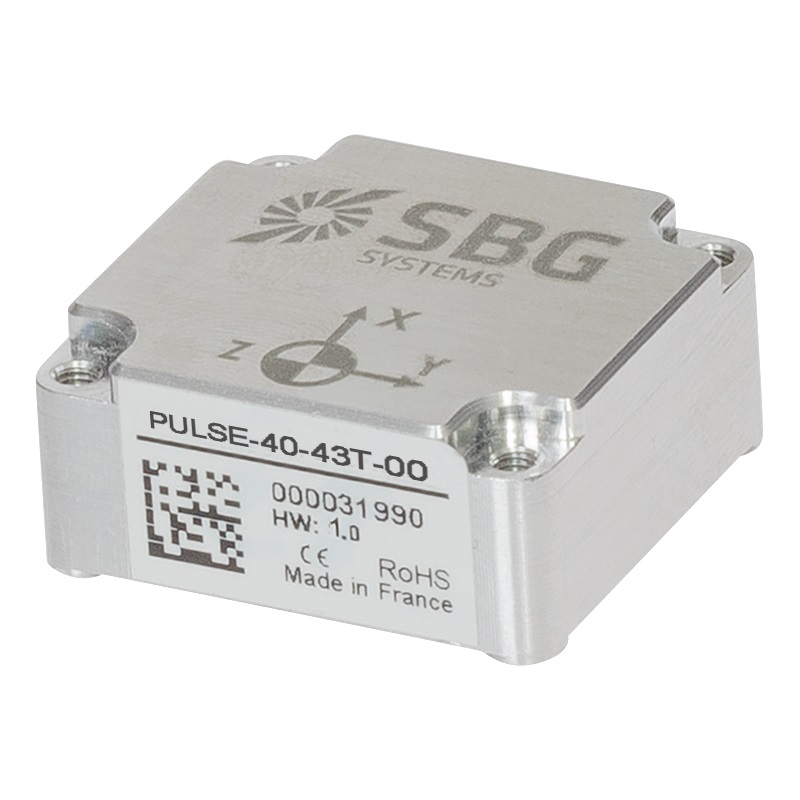Download PDF
Download page Pulse-40 User manual.
Pulse-40 User manual
Introduction
Pulse-40 is a miniature, 6 degrees of freedom (6DoF), tactical grade Inertial measurement unit, designed for a wide range of applications.
Based on a redundant integration of MEMS accelerometers and gyroscopes, the Pulse-40 features a unique set of benefits for a so small inertial measurement unit:
- Low sensor noise and high bandwidth (480Hz) and high data rate (up to 2KHz) is perfectly aligned with stabilization applications requirements
- A low gyro bias instability (0.8°/h), ideal for dead reckoning and other navigation applications
- A design tailored for vibrating environments, thanks to an ultra low Vibration Rectification Error and a robust aluminum enclosure.
- A wide temperature range of operation (-40 to 85 °C), with full performance warranty, thanks to an extensive calibration procedure, compensating for
- Bias, scale factors, non-linearity, cross-axis and misalignment. (more details on this page Factory Calibration and Tests)
- A redundant sensor design improves performance and robustness as it enables the Continuous Built-in-Test functionality. Ideal for critical applications
- An optimal SWAP-C with 30x28x13mm and weighting only 12g.
- 2 years warranty
- Advanced synchronization features

Block diagram
The following block diagram gives an overview of functions running in real-time in the Pulse-40.
A redundant set of three axes gyroscopes and accelerometers is sampled at a very high rate by the onboard microprocessor. The sensors measurement are controlled by a Continuous Built-in Test to ensure the quality of sensor measurement.
Advanced synchronization inputs and outputs features are handled by an internal clock and interrupt manager, and outputs can be generated at a very high rate of up to 2KHz on the UART interface.

Summary
Revision History
Date | Update |
|---|---|
| Added CAD files in different formats |
| Added the documentation for the RS422 Serial interface board. |
| Updated a few incorrect information in the performance specification page. |
|
|
| Removed references to Hardware codes in the documentation: the documentation refers directly to Hardware variants instead |
Updated absolute maximum rating of VDD | |
| Initial publication |